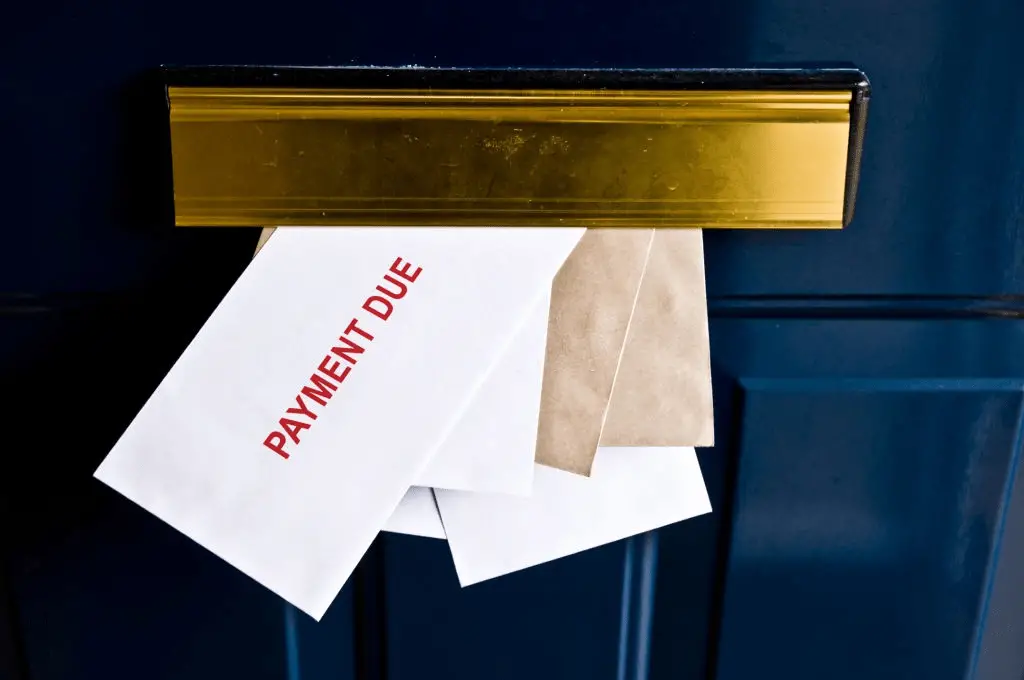If you’re buried deep in debt, you might be confused as to which creditor you should pay off first. Being in debt can be an overwhelming and discouraging experience, but you can turn it around once you begin to take control of your financial situation.
In this article, we’ll look at which debt to pay off first and how to create a plan.
How to Take Control Over your Debt
Being burdened with massive debt usually brings feelings of depression and gloom.
You regret the financial decisions you made, like being unable to save as much as you can from your salary, you feel hopeless about your future, and you suffer in despair about not having enough cash flow to survive. You might even feel a sense of isolation when you see others having fun with their money.

The truth is, many Americans carry heavy debt, so you’re not alone. And many financial decisions you might regret come from the increasing costs of housing, tuition, and medical care.
Read also
When you gain control over your debt, you’ll be able to build a solid foundation and slowly prepare for rising costs and unexpected expenses.
Part of the despair you feel is not from the debt itself, but from having a lack of control over money. A first sense of relief will come from pulling out your account statements and making a strategy on how to overcome it.
The First Two Steps to Tackling Debt
Know the terms. Read your statement to see balances, interest rates, and any other terms like details on expiring promo balances. Dive in deep and become familiar with your cards and accounts. Having clarity will help you gain a sense of power.
Make a list of all debt. Don’t worry about which creditor to place at the top just yet. For now, list the debt on a piece of paper or an Excel spreadsheet. Write the most important information next to each debt: interest rate, balance, and minimum payments.
You might have two or three different interest rates listed in your statement. Most cards keep track of how much you’ve borrowed for lower-rate promo offers and cash advances. You can split the balances on your list and make two lines if you’ve borrowed money at various rates.
Which Debt Should you Pay First?
You’ve probably heard conflicting information about whether to pay down smaller amounts or work on higher interest rates first.
Paying off high-interest rate loans first is the best way to keep money in your pocket and pay loans off quicker.
You’ll save the most money by paying higher interest debt off first because you are getting rid of the debt that costs the most to maintain.
Break Down Large Balances into Smaller Chunks
Both credit cards and student loans have balances that you can split into separate amounts. You may have gotten a special promo balance on your credit card that made your interest rate drop to zero on part of the total.
If the interest rate is low on a portion of the card, you should place the low-interest part further down the list.
You can pay your student loan debt this way too. Many people take out both federal and private student loans with different terms. You could have 4 or more student loans, all at different rates by the time of graduation. It’s best to break down the loans into smaller chunks and pay the highest interest loans first.
Related:Income Share Agreements Vs. Student Loans – Which is Better?
Another tip? Check out student loan refinancing if you have good credit. It could save you thousands!
Breaking down large balances into bite-sized pieces will make it easier to get rid of high-interest debt that may be weighing the total balance down. It’s also a good way to examine the entire loan and make a strategy for tackling it.
Make a budget and make sure you have enough to cover the minimum payments for each of your different kinds of debt. Then, put any extra money you make towards your highest interest debt.
Conclusion
If you are buried under a mountain of debt, it can be overwhelming and frustrating. But becoming aware of your total balances and interest rates is the first step to paying them off.
Once you’ve paid off the highest interest creditor first, you’ll feel better knowing that they’re not getting a penny more of your hard-earned dollars. Why give them more money than necessary?
After you pay off the first debt on your list, apply the money you were paying toward the second debt on the list. If you keep using this tactic, it won’t be long before you’re down to the very last debt on the list.
Are you working on paying off debt? What is your favorite way to prioritize which creditor to pay off first?

